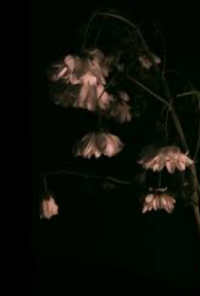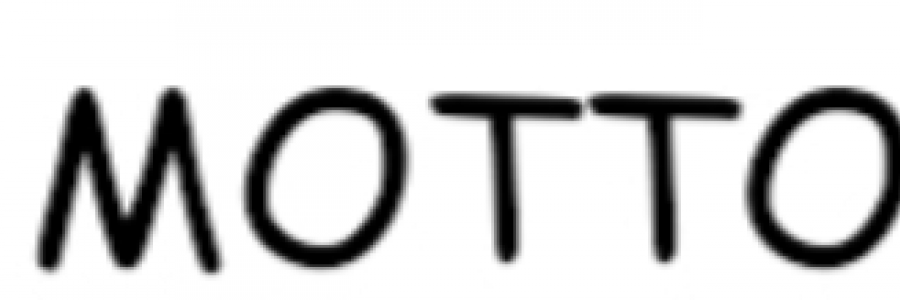I’m glad it rained today.
There’s this streetlight off the corner of my house, and on my midnight beagle walk I noticed the light it threw onto our maple tree. Lots of rain today left droplets all over the leaves, tiny leaves, bunched in clusters just unfolding. They sparkled all over the tree. I stepped outside again just now to see them again before the sun evaporates their shine. Right now this maple that’s older than my deceased grandparents is dotted in green that’s more baby’s breath than leaf, but in a few weeks those leaves will dwarf my daughter’s hand, and the moment will have passed.
As far back as I can remember, I’ve been attuned to impermanence. It bestows value. I’d turn down the Tuck family water, I’ll pass on San Junipero, and more than the diet would dissuade me from vampirism. Of all the things I’ve watched and read, an A.E. Housman poem captures impermanence best. The last stanza is the motto I’m focused on here, but I figure if you’ve read this far, you’re probably down for skimming a twelve-line poem.
Loveliest of trees, the cherry now
Is hung with bloom along the bough,
And stands about the woodland ride
Wearing white for Eastertide.
Now, of my threescore years and ten,
Twenty will not come again,
And take from seventy springs a score,
It only leaves me fifty more.
And since to look at things in bloom
Fifty springs are little room,
About the woodlands I will go
To see the cherry hung with snow.
The speaker is twenty, the same age at which I first encountered this poem in Late Victorian Lit. There’s a passage in the Bible someplace (a person with better scriptural knowledge could tell you where) that offers seventy as mankind’s allotted lifespan. The speaker calculates that he will live through fifty more springs.
Housman’s perspective is so antithetical to how we reckon time. We’re always counting up and waiting to pass chronological milestones, starting when we’re kids and want to get our ears pierced or drive or buy beer. If we later dread birthday milestones, it’s because we don’t want to go bald or imagined a different career by now or don’t want to be alone at 35. We focus on how much sand has run through the hourglass. Barring a terminal diagnosis, we younger people never notice how much sand is left in the top. There’s always been sand there, un unknown quantity large enough to take for granted, so instead we look down to calculate what has drained.
Housman looks up, and he sees the cherry blossoms. His speaker is a young man but knows springs are not infinite. Not for him. Not for me.
Using the poem’s figures, I too had fifty more springs at first reading; now I have 33. If you’re of a more statistical bent, life expectancy in the U.S. suggests I’m likely to get 41. Either way, the magic number is shrinking.
So I made my dogs stand still, and then shortly after I returned to the empty sidewalk to see the maple revive in the raindrops. My daughter picked a dandelion yesterday, golden fuzz petals and milky stem. The previous homeowner’s irises are rising now; I’ll get to see them bloom for the twelfth time. A robin perched outside my window today and tried to shake its feathers dry.
I try to live these spring moments to witness them and their beauty, to remember what and where I am, and to feel a little of what Gerard Manley Hopkins called “the dearest freshness deep down things.” People have written worse descriptions of God, and we get so few glimpses.
Hope is the thing
Did you know that two days in a psych hospital costs
$20,000, without health insurance?
I have hit rock bottom many times, my dear.
For me, hope is the thing with feathers.
A motto a la Emily Dickinson.
I sat through those literature classes
And didn’t pay twenty grand for nothing.
You can’t hit rock bottom with wings.
The Obstacle is The Way
When I think I am too busy to eat well, to talk to friends or to write on prose.com, my mind moves towards Marcus Aurelius, Emperor of the known world at his time of life.
He had great opportunity to satitate his desires and to feel profound purpose. Yet he told us to live life a different way: define yourself on how you respond to suffering.
Don’t define yourself on your successes (as much as schools train you to).
Don’t define yourself on material appropriation (a simple one that for most of us!).
Don’t define yourself on the vaugeries of love and romance (as nice as that feels).
Instead define yourself on how you respond to suffering that is inevitable in living. Don’t avoid it.
Huge suffering might be easy to avoid. Just as a large boulder would be easy to spot and skirt around, we might avoid terrible mistakes of drugs and affairs and being ill-read with relative ease.
Smaller suffering is actually more painful. Just as small pebbles trip us and invade our shoes with painful little stabs, so we cannot avoid the daily frustrations of lived existence.
I try to define myself on my rare moments of stoicism, those times when I define myself on my response to smaller suffering, those small moments of stubbed frustration.
Righteous anger often rules, alas. I lost my first draft.
Motto(s)
One of my many mottos: Take it like it is
Life is always tough. A lot of the times, we stress over what is inevitable. Life has existed for years and years, it goes way back, the way of life itself, flows naturally. To worry over every piece, only burdens your way of life.
Another one of my many mottos: When life hits you hard. Hit back harder.
(Direct quote from Rocky Balboa ["Rocky" movies]. Life quite literally might translate to difficult in some other language. It hits hard, it always will, at some point, you're going to be left in shambles while searching for comprehension, only to be utterly lost. Dust yourself off, get up and rise. Hit back. Otherwise, life is going to have a field day with you and beat you all the way into your grave and the path all the way up to that point isn't pretty.
Now, of course, these two mottos could very well contradict each other. But don't overthink it. There's always a balance. Hold your ground but also know what is really worth it. Also have the question of "Does this truly matter in five years" on repeat in your mind. You'll be surprised how many times it will help you.
Beliefs and Truths
A few years ago I came to some tough realisations.
On the back of them I adopted the following as my Truths of Life:
Life is not fair. There are no guarantees. I will make mistakes. The goalposts move. Not everybody thinks like I do.
I identified the following as my ‘Stone of Life’. The heart of my beliefs.
Be firm but fair. Give others a voice and use your own voice. Be resilient and look after yourself. Be caring and be honest.
My core belief is a belief in synchronicity and the holistic nature of life. You are where you are meant to be. It doesn’t mean you have to stay there. Only by accepting where you are can you move on.




